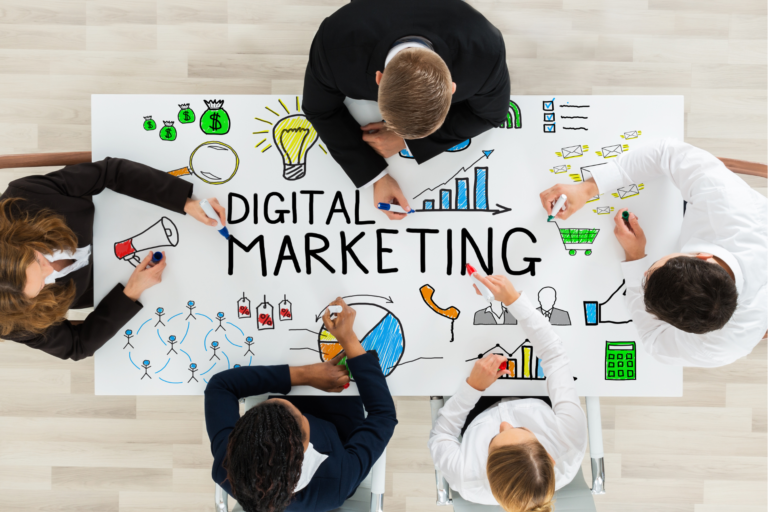Call Anytime
Digital Marketing
Categories

Do you have a Technical Issues?

What is Digital Marketing?
Digital marketing refers to the use of digital channels and online platforms to promote and grow your business. Unlike traditional marketing, which relies on physical media like print ads and billboards, digital marketing uses the internet and electronic devices to reach potential customers.
Unlock Your Business’s Potential with Effective Digital Marketing
In today’s fast-paced digital world, traditional marketing strategies alone might not be enough to reach your target audience. Digital marketing has become essential for businesses of all sizes looking to make a mark online. But what exactly is digital marketing, and how can it benefit your business? Let’s explore the ins and outs of digital marketing and discover how it can transform your online presence.
Search Engine Optimization
Improving your website’s visibility in search engine results to attract organic traffic.
Social Media Marketing
Using platforms like Facebook, Instagram, and Twitter to connect with your audience.

Why Digital Marketing Matters
- Digital marketing allows you to reach a global audience, breaking down geographical barriers.
- Compared to traditional marketing, digital marketing is often more affordable. Many digital channels offer flexible budgeting options,
- One of the biggest advantages of digital marketing is the ability to track and measure your results.
What is the difference between SEO and SEM?
SEO (Search Engine Optimization) focuses on improving your website's organic (non-paid) search engine rankings through techniques like keyword optimization, content creation, and link building. SEM (Search Engine Marketing), on the other hand, involves paid advertising efforts to boost your visibility in search engine results.
How important is content marketing in digital marketing?
Content marketing is crucial because it helps attract and engage your target audience by providing valuable, relevant, and consistent content. Quality content can drive traffic to your website, improve your search engine rankings, and build trust with your audience. It also supports other digital marketing efforts, such as SEO and social media marketing, by creating shareable material that resonates with your audience.
How can businesses use PPC advertising effectively?
To use PPC advertising effectively, businesses should:
- Target the Right Audience: Use demographic and interest targeting to reach users who are most likely to be interested in your product or service.
- Choose Relevant Keywords: Conduct thorough keyword research to select terms that potential customers are searching for.
- Create Compelling Ads: Develop engaging and relevant ad copy that resonates with your target audience and includes a strong call to action.
- Optimize Landing Pages: Ensure that your landing pages are relevant to your ads, provide a clear value proposition, and have a user-friendly design.
- Monitor and Adjust: Regularly review your PPC campaign performance, analyze data, and make adjustments to improve results and reduce costs.
What are the benefits of using A/B testing in digital marketing?
A/B testing involves comparing two versions of a marketing element (such as an email subject line or ad copy) to determine which one performs better. The benefits of A/B testing include:
- Improved Performance: By testing different variations, you can identify which version resonates more with your audience and drives better results.
- Data-Driven Decisions: A/B testing provides empirical evidence to guide your marketing decisions rather than relying on assumptions.
- Enhanced User Experience: Testing different elements allows you to refine your approach to better meet user needs and preferences.
- Increased ROI: By optimizing your campaigns based on test results, you can improve efficiency and maximize your return on investment.
